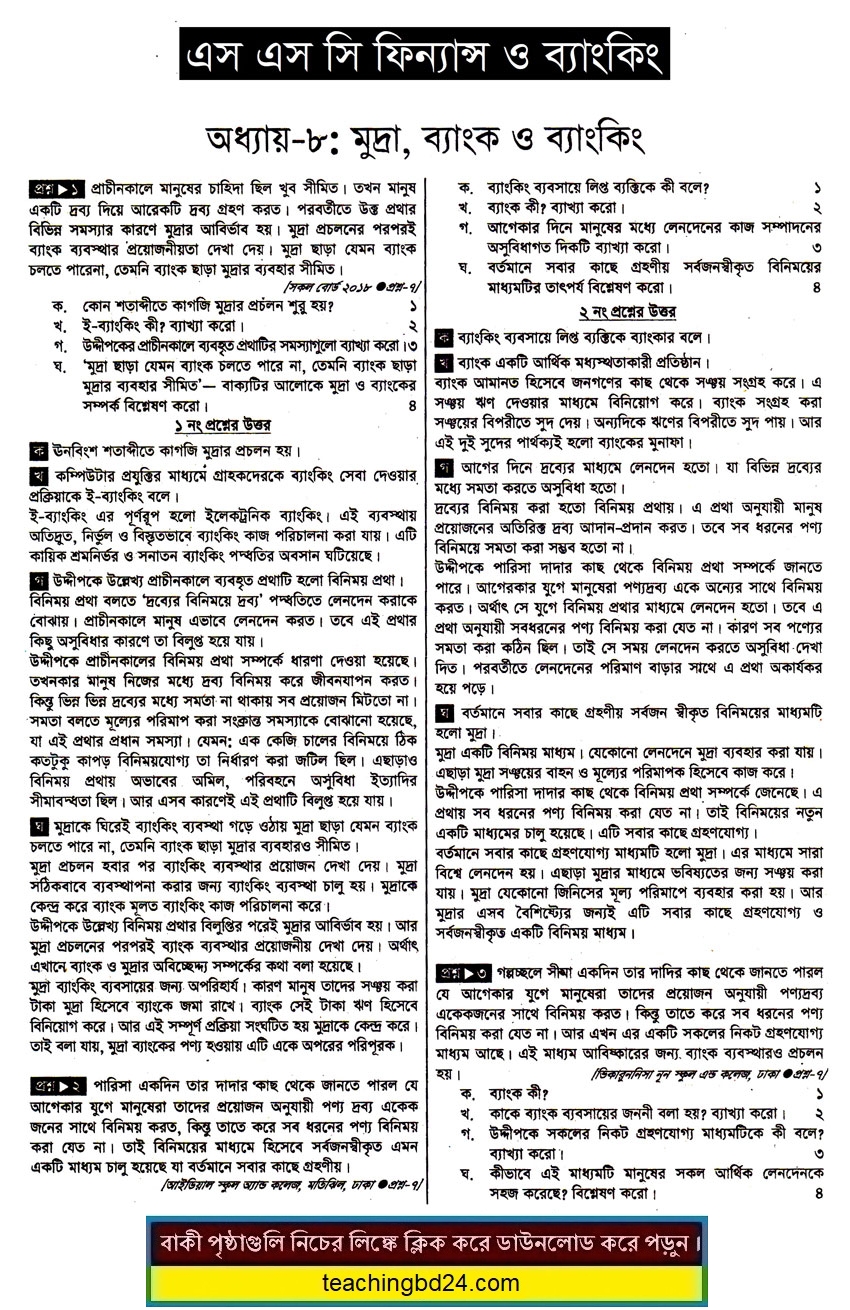Chapter 8. Currency, Bank & Banking. By reading this chapter, students will learn about the history of currency, its evaluation, and present condition. Moreover, they will also know about the uses and necessity of currency and the relationship between currency and banking.
After reading this chapter students will also be able to improve their idea about the creation of banks, the banking system, and bankers as a result of multiple uses of currency. The history of banking business and evaluation has also been discussed in this chapter in addition to a brief discussion on the present banking system of Bangladesh and its history.
Chapter 8. Currency, Bank & Banking


The necessities of man, his activities and social bonding had been increasing since the creation of man and the dawn of civilization. In the beginning, the necessities of men were very limited and they met those necessities by exchanging additional commodities after meeting his demand. This “exchange of commodities” is known as the Barter System. In the course of time with the increase of human knowledge and intelligence the human activities especially the ‘Barter System’ expended much and along with them, human necessities started to increase.
The definition of a bank varies from country to country. See the relevant country pages for more information.
Under English common law, a banker is defined as a person who carries on the business of banking by conducting current accounts for his customers, paying cheques drawn on him/her and also collecting cheques for his/her customers.[13]
Banco de Venezuela in Coro.
Branch of Nepal Bank in Pokhara, Western Nepal.
In most common law jurisdictions there are a Bills of Exchange Act that codifies the law in relation to negotiable instruments, including cheques, and this Act contains a statutory definition of the term banker: banker includes a body of persons, whether incorporated or not, who carry on the business of banking’ (Section 2, Interpretation). Although this definition seems circular, it is actually functional, because it ensures that the legal basis for bank transactions such as cheques does not depend on how the bank is structured or regulated.
The business of banking is in many English common law countries not defined by statute but by common law, the definition above. In other English common law jurisdictions, there are statutory definitions of the business of banking or banking business. When looking at these definitions it is important to keep in mind that they are defining the business of banking for the purposes of the legislation, and not necessarily in general. In particular, most of the definitions are from legislation that has the purpose of regulating and supervising banks rather than regulating the actual business of banking. However, in many cases, the statutory definition closely mirrors the common law. Examples of statutory definitions:
“banking business” means the business of receiving money on current or deposit account, paying and collecting cheques drawn by or paid in by customers, the making of advances to customers, and includes such other business as the Authority may prescribe for the purposes of this Act; (Banking Act (Singapore), Section 2, Interpretation).
“banking business” means the business of either or both of the following:
receiving from the general public money on current, deposit, savings or another similar account repayable on demand or within less than [3 months] … or with a period of call or notice of less than that period;
paying or collecting cheques drawn by or paid in by customers.
teachingbd24.com is such a website where you would get all kinds of necessary information regarding educational notes, suggestions and questions’ patterns of school, college, and madrasahs. Particularly you will get here special notes of physics that will be immensely useful to both students and teachers. The builder of the website is Mr. Md. Shah Jamal Who has been serving for 35 years as an Asst. Professor of BAF Shaheen College. He expects that this website will meet up all the needs of Bengali version learners /students. He has requested concerned both students and teachers to spread this website home and abroad.
Discover more from Teaching BD
Subscribe to get the latest posts sent to your email.


